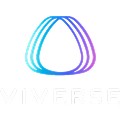
Town Star

Upland

Viverse

VRChat

VRLand


This web page presents the final selection of 30 virtual worlds, identified from an initial pool of 75 through OPENVERSE’s in-depth analysis of platforms aligned with European values of openness, privacy, and human-centred design. The study applies a robust analytical framework across 9 dimensions —from accessibility to interoperability— to assess co-creation potential, sustainability, and future readiness.
The analysis reflects the state of the platforms as of October 2024 and may not capture recent developments.
This interactive dashboard offers SME founders, researchers, professionals, and enthusiasts insight into how each virtual world scores through a dynamic bar chart, detailed heatmap, and purpose-matching alluvial chart. A filterable catalogue enables easy comparison and exploration.
The findings support foresight and innovation by identifying the most promising platforms for European creators to engage with, build upon, and shape the future of open virtual worlds.
The heatmap below offers a visual comparison of how each of the 30 selected virtual worlds scores across the 9 evaluation dimensions used in the OPENVERSE study.
Each cell represents a score, with colour intensity indicating performance: darker shades reflect higher alignment with key criteria such as accessibility, co-creation, interoperability, and more.
This allows for a quick, intuitive overview of strengths and gaps across platforms.
The alluvial chart below shows how each of the 30 selected virtual worlds maps to one or more key purposes: Creating, Entertaining, Exploitation, Learning, Service, Socialising, Transactions, and Working.
The flowing connections highlight the main functions these platforms serve, helping users understand the diverse roles they can play in co-creation and innovation across the Openverse.





